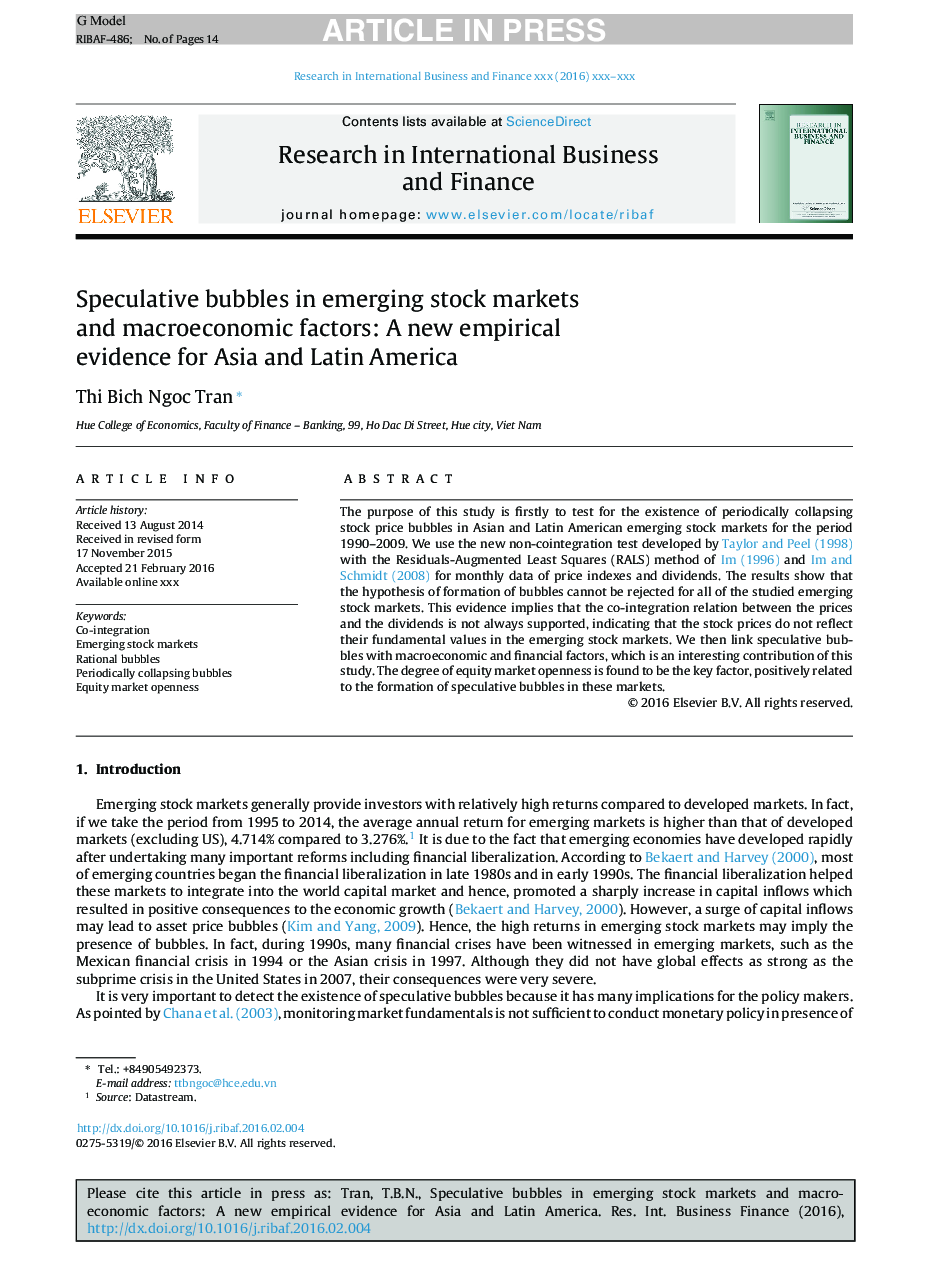| Article ID | Journal | Published Year | Pages | File Type |
|---|---|---|---|---|
| 5107282 | Research in International Business and Finance | 2017 | 14 Pages |
Abstract
The purpose of this study is firstly to test for the existence of periodically collapsing stock price bubbles in Asian and Latin American emerging stock markets for the period 1990-2009. We use the new non-cointegration test developed by Taylor and Peel (1998) with the Residuals-Augmented Least Squares (RALS) method of Im (1996) and Im and Schmidt (2008) for monthly data of price indexes and dividends. The results show that the hypothesis of formation of bubbles cannot be rejected for all of the studied emerging stock markets. This evidence implies that the co-integration relation between the prices and the dividends is not always supported, indicating that the stock prices do not reflect their fundamental values in the emerging stock markets. We then link speculative bubbles with macroeconomic and financial factors, which is an interesting contribution of this study. The degree of equity market openness is found to be the key factor, positively related to the formation of speculative bubbles in these markets.
Related Topics
Social Sciences and Humanities
Business, Management and Accounting
Business and International Management
Authors
Thi Bich Ngoc Tran,
